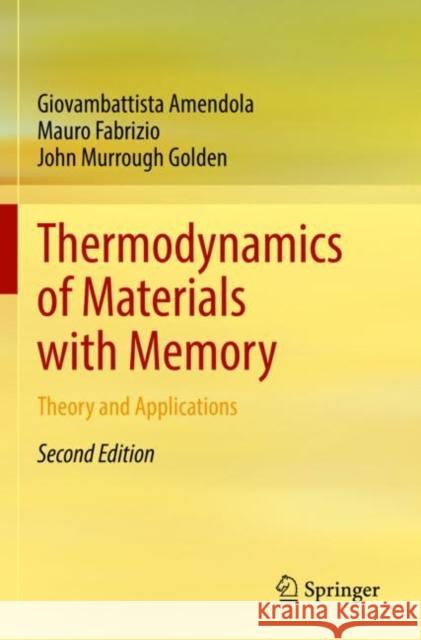Thermodynamics of Materials with Memory: Theory and Applications » książka
topmenu
Thermodynamics of Materials with Memory: Theory and Applications
ISBN-13: 9783030805364 / Angielski / Miękka / 2022
Thermodynamics of Materials with Memory: Theory and Applications
ISBN-13: 9783030805364 / Angielski / Miękka / 2022
cena 603,81
(netto: 575,06 VAT: 5%)
Najniższa cena z 30 dni: 578,30
(netto: 575,06 VAT: 5%)
Najniższa cena z 30 dni: 578,30
Termin realizacji zamówienia:
ok. 22 dni roboczych.
ok. 22 dni roboczych.
Darmowa dostawa!
This monograph deals with the mechanics and thermodynamics of materials with memory, including properties of the dynamical equations that describe their evolution in time under varying loads. A work in four parts, the first is an introduction to continuum mechanics, including classical fluid mechanics, linear and non-linear elasticity. The second part considers continuum thermodynamics and its use to derive constitutive equations of materials with memory, including viscoelastic solids, fluids, heat conductors and some examples of non-simple materials. In the third part, free energies for materials with linear memory constitutive relations are discussed. The concept of a minimal state is introduced. Explicit formulae are presented for the minimum and related free energies. The final part deals with existence, uniqueness, and stability results for the integrodifferential equations describing the dynamical evolution of viscoelastic materials, including a new approach based on minimal states rather than histories. There are also chapters on the controllability of thermoelastic systems with memory, the Saint-Venant problem for viscoelastic materials and on the theory of inverse problems.
The second edition includes a new chapter on thermoelectromagnetism as well as recent findings on minimal states and free energies. It considers the case of minimum free energies for non-simple materials and dielectrics, together with an introduction to fractional derivative models.











